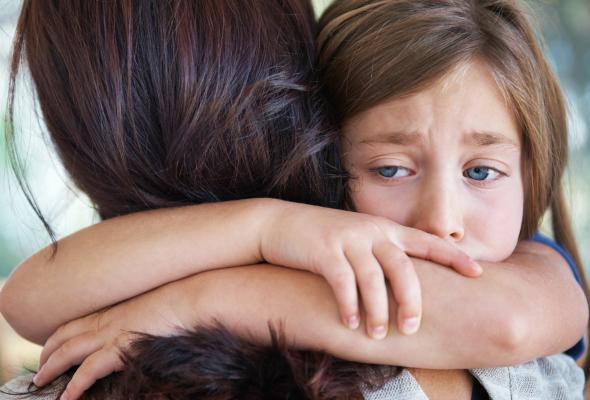
Parents, still reeling from the news of another horrific mass shooting, may be struggling with whether or how to talk with their children about the Orlando shooting.
Should parents broach the topic or wait to see if their children have reactions or questions? How can they provide both sensitive and genuine information and explanations for such unthinkable acts? How might influential adults such as teachers, counselors, faith leaders, and coaches be discussing the event?
We try to keep children safe and secure, but we also help them understand and prepare for the uncertain and unsettling world we live in.
What is shocking to adults may not have a comparable impact on children. Children’s age, level of understanding, and current state of mind will affect how they process the information. A child may believe that acts of terrorism put them in immediate danger, which needs to be addressed as a personal issue. A young child may have no conception of their distance from Florida, of the infrequency of such events, or even of the seriousness of injuries or the permanence of death. Older children may have a better grasp of the realities of the situation, but may be consumed by other distractions or stressors in their life that distance them, for better or worse, from headlines. Alternatively, older children may have personal issues or traumatic histories that make them vulnerable to such news, and trigger extreme reactions.
Children’s impressions are shaped by how near they perceive events to be, and how their community and people they know are affected. A prime example is how the Boston Marathon bombings were experienced by children in Boston. Children may have watched the race themselves, and may have known people who raced or who were injured. Several days later, following a wild chase and gunfight, the entire city was in lockdown, with streets eerily quiet for an entire day amidst warnings that danger may be lurking outside. Some children heard gunfire in their neighborhood. Awareness of events and the level of alarm for children in Boston was very different than for children in California, for instance.
In talking to children about the Orlando massacre or similar acts of violence, keep in mind that the following suggestions should be tailored to individual children and their circumstances.
Messages and discussions will vary based on the child or children involved.
Children will have varied levels of knowledge and understanding about events. Messages to children should be adjusted depending on age and developmental level. Children with the same degree of exposure can have widely varying reactions. It may be important to let children know they are not in any immediate danger. It may also be important to support their feelings of sorrow, sympathy, or concern.
Open up the conversation without making assumptions.
The starting point for any conversation is to determine what children know and may be concerned about. This is best begun with open-ended questions such as “What have you been hearing about the shooting in Orlando?” Gauge their need for information or explanations based on their questions and reactions.
Take note of children’s reactions.
Each child is going to react in a different way when you discuss the attacks with them. It is important for parents and teachers to take note of pronounced emotional reactions to the attack. For children with histories of trauma or troubling experiences, hearing about the shooting in Orlando could trigger profound emotional reactions. When a child needs additional attention or support, parents or teachers may want to seek the help of a mental health professional at the child’s school or in the community.
Be accepting of reactions different from your own.
Although parents should be responsive to the needs of children, it is also important for parents to convey their own attitudes and feelings about such evil deeds. However, parents may be disappointed or upset if a child who is capable of empathy comes across as oblivious or uncaring. Children may have other things on their mind. They may not have an historic or worldly perspective about discrimination, criminality, or terrorism, and may view the event through a different lens. They may not be ready or receptive at the particular time for the parent’s efforts to make this a “teachable moment.” Teach them anyway. Parents’ words-and deeds-have far more impact than children may register in the moment.
Sound advice from a mental health professional or a dependable website, such as the National Association of School Psychologists, can help parents and teachers communicate with children. It is important for parents, teachers and community leaders to set a positive example for the children they interact with, helping them to feel safe while also instilling within them compassion for the victims.







